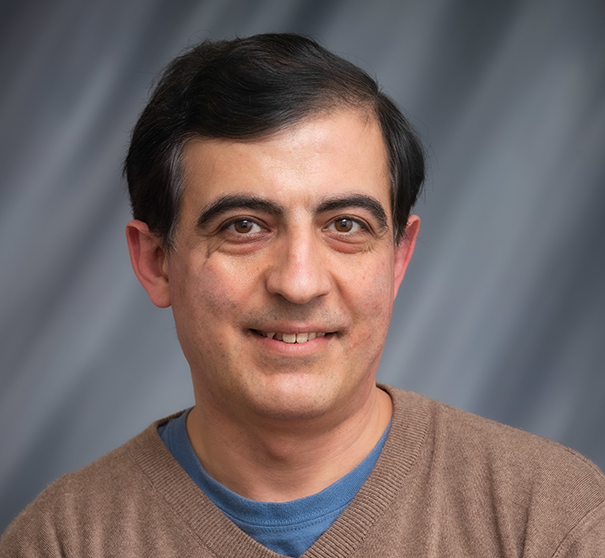Pavel Lukashev
Associate Professor of Physics
Dr. Lukashev received M.S. and Ph.D. in Physics from the Case Western Reserve University in 2003 and 2007 respectively, as well as M.S. in Industrial Engineering and Systems Management from the American University of Armenia in 2000. He received his B.S. in Physics from the Yerevan State University in 1996. He worked as a postdoctoral research associate from 2006 to 2014 in University of Nebraska at Omaha and University of Nebraska – Lincoln. He joined the Physics Department at the University of Northern Iowa in August 2014. Dr. Lukashev fluently speaks three languages: English, Armenian, and Russian.
Dr. Lukashev's research interests are in the field of computational and theoretical condensed matter physics and materials science, in particular electronic structure calculations with emphasis on magnetic materials and their potential applications. He employs density functional theory (DFT) based packages (VASP, LMTO, Quantum Espresso) to perform computer simulations and analytical study of materials at atomic level with wide scope of both academic and industrial applications. He performs most of his calculations at the UNI High Performance Computer cluster, as well as at external user facilities, such as at the Pittsburgh Supercomputer Center. Dr. Lukashev’s recent work includes research in the critical areas of spintronics, magnetic materials and nanocomposite structures, electronic and magnetic structure analysis of Heusler alloys, layered van der Waals materials, etc. He regularly publishes his research in peer-reviewed journals (Physical Review B, ACS Nano, Applied Physics Letters, Journal of Physics, etc.) and presents at professional conferences.
Students working with Dr. Lukashev gain advanced computer simulation skills, such as UNIX shell scripting, thorough understanding of DFT based codes and parallel computing used in materials science, as well as obtain hands-on experience in data post-processing and analytical study. Besides, typically students have opportunities to publish their research in professional journals and/or to present at conferences. These skills and background could be applied in graduate school and/or in industry focused on data processing and analysis. Students interested in performing research in computational materials science and condensed matter physics are welcome to discuss available opportunities with Dr. Lukashev.

